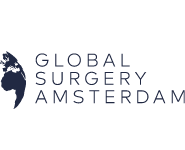Three ways of training
Training local surgeons
Our primary goal is to empower local surgeons by providing them with comprehensive training programs. By equipping them with the necessary knowledge and skills, we aim to strengthen surgical capacity around the world and improve healthcare outcomes for communities in need. Through close collaboration and mentorship, we foster an environment of continuous learning and professional growth.
While the traditional approach of participating in short-term surgical missions has its merits, we believe in a more sustainable and impactful strategy. Our focus lies in knowledge transfer and research, with a long-term vision of empowering local healthcare workers to enhance their own surgical care for the people in their region. By providing surgical training opportunities within their own settings, we facilitate skill development and promote self-sufficiency.
At GSA, we develop and implement specialized courses tailored to medical doctors, interns, nurses, and other hospital staff. Our training approach encompasses both “on the job” and “off the job” components, ensuring that participants acquire practical skills that can be immediately applied alongside theoretical knowledge. We work hand in hand with local staff, organizing and facilitating courses that gradually transform them into trainers themselves through our “train the trainer” method.
We are excited to announce the upcoming launch of our highly anticipated Basics of Burn Care Course. This comprehensive course, developed with the most modern standards in burn care, will provide healthcare professionals with in-depth training and practical insights into the management of burn injuries. Stay tuned for updates on the course launch and join us in advancing global surgical education.
Together, we’re building a stronger foundation for surgical excellence worldwide.
Together, we strive to build a network of skilled and empowered surgeons who can provide high-quality surgical care to those in need. By investing in local capacity, we foster sustainable healthcare systems and create lasting change.
Teaching about global surgery
We are dedicated to integrating global surgery education within the Dutch medical education system. By raising awareness and promoting a deeper understanding of the unique challenges and opportunities in global surgical care, we aim to inspire the next generation of medical professionals to engage in this important field.
Global surgery is an area that often goes unnoticed by many surgeons, primarily due to a lack of awareness. However, with the ambitious objective of providing safe and affordable surgical care to an additional 5 billion people, we recognize the need for widespread involvement. To bridge this gap, we seize every opportunity to educate and enlighten young medical students about the significance of global surgery.
Through a combination of lectures, interactive sessions, and innovative platforms, we strive to promote an exchange of knowledge and experiences between Dutch students and their counterparts from diverse backgrounds, such as Tanzania or Sierra Leone. By fostering meaningful connections and mutual understanding, we lay the foundation for future collaborations that can address the challenges faced by billions of people worldwide.
We firmly believe that solving a problem of such magnitude requires impactful interventions at every level. By familiarizing individuals with the realities and struggles of different healthcare systems, we aim to ignite a passion for global surgical care and instill a sense of responsibility in the minds of young medical professionals.
Developing open source materials
In our commitment to accessible and inclusive education, we have developed open-source digital learning materials. These resources serve as valuable references, enabling medical practitioners worldwide to access up-to-date information and expand their knowledge base in Global Surgery. By leveraging technology, we are breaking down geographical barriers and ensuring that knowledge is freely available to those who seek it.
We recognize that access to quality training opportunities, materials, and methods is not evenly distributed among medical students worldwide. This disparity creates a pressing need to bridge the gap and provide equal learning opportunities for all aspiring healthcare professionals.
To address this issue, we are excited to introduce The Basics of Burn Care website. This resource was developed with a focus on modern standards of burn care and mindful of limited resource settings. It was designed to be user-friendly and easy to access, ensuring that healthcare providers can readily access vital information regardless of their location.
Continuing our commitment to enhancing medical care, we are dedicated to creating interactive learning tools that empower doctors worldwide to improve their patient care. Through these initiatives, we strive to foster a global community of medical professionals equipped with the knowledge and skills to deliver exceptional healthcare services to those in need.
Stay tuned for updates on our open-source learning materials and join us in advancing global surgical education for a brighter future in healthcare.

